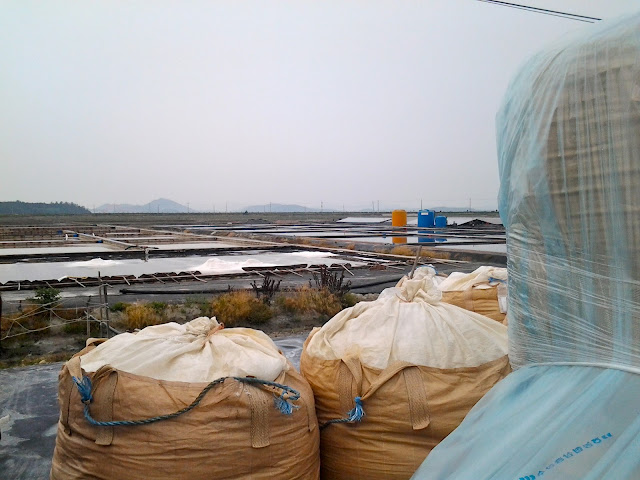The island of Jeungdo is home to Korea's largest sun-dried salt fields - Taepyeong Salt Farm. Something over 15,000 tons of salt is produced here each year. It was also Korea's first "slow city," a title that has increased funds and sparked tourism enough that a bridge was built to connect the island to the mainland in 2007. It's still vastly underdeveloped and with only 2,000 residents, free of mass consumerism and flashy lights.
Originally salt production on Jeungdo was instated to boost the local economy after the Korean War. Sun-dried salt is known for being very clean, and as many Koreans told me, much tastier than the cheap stuff from China. It's made by evaporating sea water with wind and sunshine until the salt crystallizes. It's then pushed into a pyramid with the tool you see above and then extracted to.. ya know.. be sold and consumed.
Besides salt, the island is also known for uncovering Chinese artifacts that apparently fell off a boat some 700 years ago. In 1975, a fisherman stumbled upon this celadon pottery in the oceans off the island and over the next eight years, an evacuation project was led to recover 30,000 pieces. PRETTY NUTS.
I continually worry that some billionaire will discover some of Korea's
pristine islands and start building high rises and billion dollar
hotels. Of course I'm being dramatic, but the countryside in this
country, while perhaps quite humble, is often terribly breathtaking. Until then, I'll enjoy my perma-vacation status in the Land of the Morning Calm.
 |
| Jeungdo // Photo by Carl Cunningham |




















